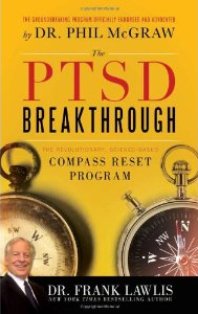September 30th, 2010 by Steve Novella, M.D. in Better Health Network, Health Tips, Opinion, Quackery Exposed, Research
3 Comments »

If you believe everything you read on the Internet, then is seems that a chemical found in thousands of products is causing an epidemic of severe neurological and systemic diseases, like multiple sclerosis and lupus. The FDA, the companies that make the product, and the “medical industrial complex” all know about the dangers of this chemical, but are hiding the truth from the public in order to protect corporate profits and avoid the pesky paper work that would accompany the truth being revealed.
The only glimmer of hope is a dedicated band of bloggers and anonymous email chain letter authors who aren’t afraid to speak the truth. Armed with the latest anecdotal evidence, unverified speculation, and scientifically implausible claims, they have been tirelessly ranting about the evils of this chemical for years. Undeterred by the countless published studies manufactured by the food cartel that show this chemical is safe, they continue to protect the public by spreading baseless fear and hysteria.
Hopefully, you don’t believe everything you read on the Internet, and you don’t get your science news from email SPAM, where the above scenario is a common theme. While there are many manifestations of this type of urban legend, I am speaking specifically about aspartame — an artificial sweetener used since the early 1980s. The notion that aspartame is unsafe has been circulating almost since it first appeared, and like rumors and misinformation have a tendency to do, fears surrounding aspartame have taken on a life of their own. Read more »
*This blog post was originally published at Science-Based Medicine*
September 23rd, 2010 by Harriet Hall, M.D. in Better Health Network, Book Reviews, Opinion, Quackery Exposed, Research
3 Comments »

 It infuriates me when someone misappropriates the word “science” to promote treatments that are not actually based on science. I have just read a book entitled The PTSD Breakthrough: The Revolutionary Science-Based Compass RESET Program by Dr. Frank Lawlis, a psychologist who is the chief content advisor for Dr Phil and The Doctors. There is very little science in the book and references are not provided. It amounts to an indiscriminate catalog of everything Dr. Lawlis can imagine that might help post-traumatic stress disorder (PTSD) patients.
It infuriates me when someone misappropriates the word “science” to promote treatments that are not actually based on science. I have just read a book entitled The PTSD Breakthrough: The Revolutionary Science-Based Compass RESET Program by Dr. Frank Lawlis, a psychologist who is the chief content advisor for Dr Phil and The Doctors. There is very little science in the book and references are not provided. It amounts to an indiscriminate catalog of everything Dr. Lawlis can imagine that might help post-traumatic stress disorder (PTSD) patients.
He describes recent brain imaging studies suggesting that signs of traumatic brain injury are associated with PTSD. He thinks PTSD can no longer be considered a psychological condition, but must be approached as a complex biological, physical, psychological, and spiritual condition. He says many of these patients have brain damage. Read more »
*This blog post was originally published at Science-Based Medicine*
September 16th, 2010 by Mark Crislip, M.D. in Better Health Network, Opinion, Research
No Comments »

Humans love to find patterns in the world. Sometimes patterns exist, sometimes they are imaginary. Sometimes you can see a pattern that may be interesting and ignore its significance. As a resident I used to say that anyone who smokes three packs of cigarettes a day has to be schizophrenic. It was meant more as a joke when, in fact, it was later discovered that tobacco helps ameliorate the symptoms of schizophrenia. I need to pay more attention.
Part of my job is to look for patterns as a key to the patients diagnosis. Diseases and pathogens tend to (more or less) cause reproducible signs and symptoms and looking for that pattern is often the most helpful clue towards finding the diagnosis. Of course things are never as easy as one would like, as you have to consider whether you are seeing common manifestations of a common disease, uncommon manifestations of a common disease, common manifestations of a uncommon disease and, the hardest, uncommon manifestations of an uncommon disease. When I have a complex or uncertain cause, I explicitly run through that, and other, litanies so I do not miss a unusual diagnosis.
Chronic fatigue syndrome (CFS) has, at least to my way of thinking, two patterns. I see the occasional CFS patient in clinic and, I hope, pay attention to their disease patterns. I keep in mind I may be seeing a pattern that does not exist, but looking for disease patterns is what doctors are trained to do. Read more »
*This blog post was originally published at Science-Based Medicine*
September 13th, 2010 by David Kroll, Ph.D. in Better Health Network, Health Policy, News, Opinion, Research
No Comments »

I’m only a monthly contributor here, but between being a Science Based Medicine (SBM) reader and having my own blogs, I often grow weary of the blind criticism that researchers and drug companies couldn’t care less about traditional folk medicines as drug products. My laboratory spends every single day working on natural product extracts in the search for compounds that may have selective effectiveness against cancer. So this is a bit of a sore spot for me.
Two [recent] papers from Cancer Prevention Research on the potential anticancer effects of a diabetes drug (see Nathan Seppa’s story here) remind me to tell the story of a Middle Ages European herbal medicine used to treat polyuria that gave rise to one of the most widely prescribed drugs in the world, metformin (Glucophage in the U.S.). Metformin, known chemically as a biguanide, dimethylguanide to be precise, traces its roots to the plant Galega officinalis. Known as goat’s rue, French lilac, or professor weed, this plant was shown to be a rich source of guanidine and a less toxic compound later called galegin or galegine (isoamyline guanidine). Read more »
*This blog post was originally published at Science-Based Medicine*
September 11th, 2010 by Jeffrey Benabio, M.D. in Better Health Network, Health Tips, Humor, News, Opinion, Quackery Exposed, Research
1 Comment »

 Last week a popular TV talk show featuring a bunch of doctors (I’m not naming names) discussed how coffee grounds can improve cellulite. They explained how rubbing coffee grounds into your skin imparts caffeine into the cellulite thereby improving the circulation and drawing the toxins out.
Last week a popular TV talk show featuring a bunch of doctors (I’m not naming names) discussed how coffee grounds can improve cellulite. They explained how rubbing coffee grounds into your skin imparts caffeine into the cellulite thereby improving the circulation and drawing the toxins out.
This is a great tip, except that rubbing coffee grounds on your skin does not impart any caffeine into it, and there are no toxins in cellulite.
Cellulite is a normal secondary sex characteristic of women. It is the result of thin connective tissue in women’s skin. Massaging the cellulite (with coffee, tea, grapes, cream cheese, or chocolate frosting) pushes the fat back into the skin, temporarly improving the appearance. There is no science behind using coffee to treat this normal condition.
Scientific studies have shown, however, that carrying a wet coffee filter filled with grounds into your bathroom will burn more calories, because you’ll spend 20 minutes later cleaning up the mess in your shower.
*This blog post was originally published at The Dermatology Blog*



 It infuriates me when someone misappropriates the word “science” to promote treatments that are not actually based on science. I have just read a book entitled
It infuriates me when someone misappropriates the word “science” to promote treatments that are not actually based on science. I have just read a book entitled 
 Last week a popular TV talk show featuring a bunch of doctors (I’m not naming names) discussed how coffee grounds can improve cellulite. They explained how rubbing coffee grounds into your skin imparts caffeine into the cellulite thereby improving the circulation and drawing the toxins out.
Last week a popular TV talk show featuring a bunch of doctors (I’m not naming names) discussed how coffee grounds can improve cellulite. They explained how rubbing coffee grounds into your skin imparts caffeine into the cellulite thereby improving the circulation and drawing the toxins out.









